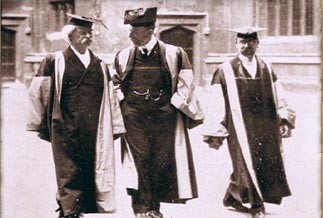 Big Blue is hoping that its AI based supercomputer Watson can come up with a few ideas which will help turn it around.
Big Blue is hoping that its AI based supercomputer Watson can come up with a few ideas which will help turn it around.
IBM is taking a kicking from cheap cloud computing services and the outfit is facing an uncertain future.
Apparently, IBM’s research division is building on the research effort that led to Watson, the computer that won in the game show Jeopardy! in 2011. The hope is that this effort will lead to software and hardware that can answer complex questions by looking through vast amounts of information containing subtle and disparate clues.
John Kelly, director of IBM Research told MIT Technology review that IBM was betting billions of dollars, and a third of this division now is working on artificial intelligence techniques related to Watson.
Earlier this year the division was reorganised to ramp up efforts related to cognitive computing. The push began with the development of the original Watson, but has expanded to include other areas of software and hardware research aimed at helping machines provide useful insights from huge quantities of often-messy data.
So far, the research has created new recipes by analysing thousands of ingredients and popular meals, and, less interesting, electronic components, known as neurosynaptic chips, that have features modelled on the workings of biological brains and are more efficient at processing sensory information.
The hope is that the technology will be able to answer complicated questions in different industries, including health, financial markets, and oil discovery; and that it will help IBM build its new computer-driven consulting business.
There is a growing belief that machine-learning techniques may provide ways to use big data. Already Google, Facebook, and Amazon have their own methods for hunting through vast quantities of data for useful insights.
So far those Watson has proved a bit elementary. Some companies and researchers testing Watson systems have reported difficulties in adapting the technology to work with their data sets. However that has not stopped IBM’s CEO, Virginia Rometty, said in October last year that she expects Watson to bring in $10 billion in annual revenue in 10 years, even though that figure then stood at around $100 million.
IBM is aggressively commercialising the technology. Last week the company announced it had teamed up with Twitter and the Chinese social network Tencent to offer a service that will try to find useful insights from messages daily sent through these services, as we reported here. A company that sells phones might, for example, learn about a possible problem with one of its products from comments made by restaurant patrons.






